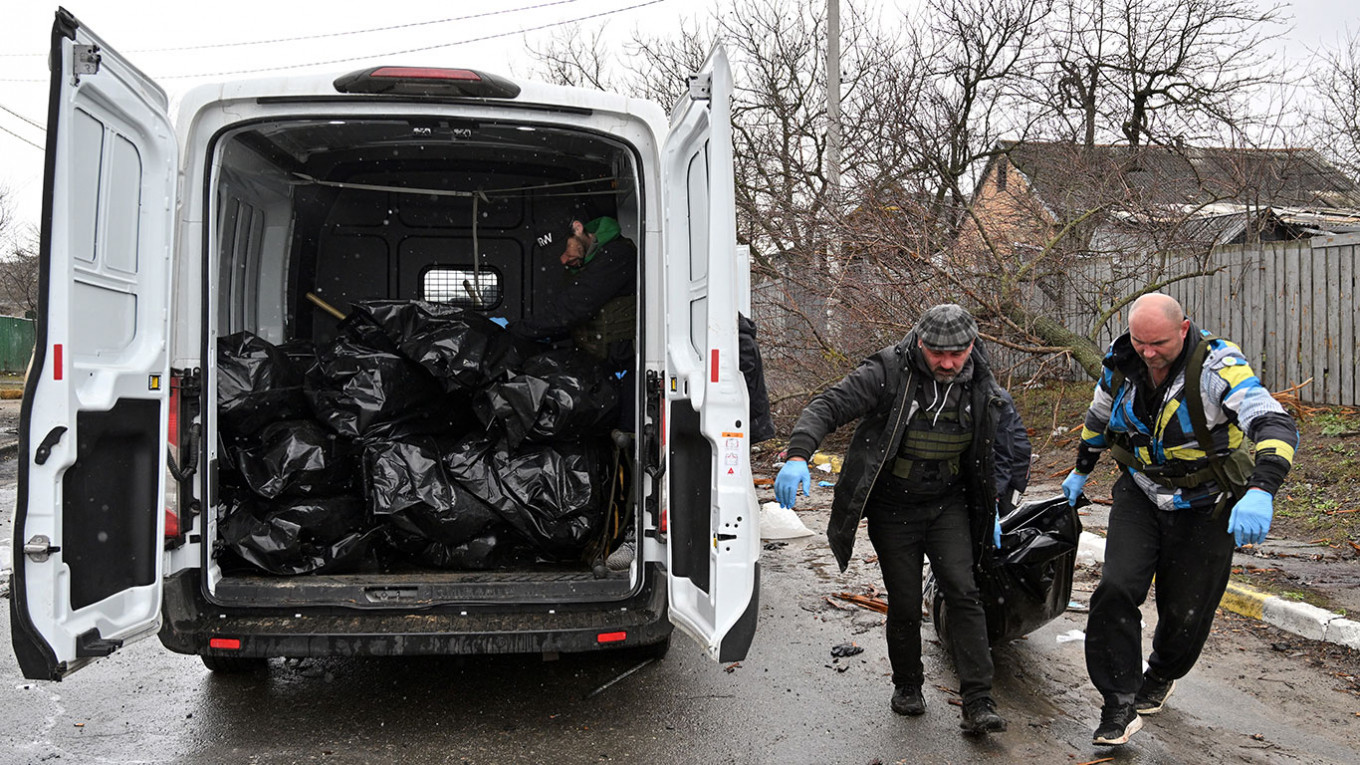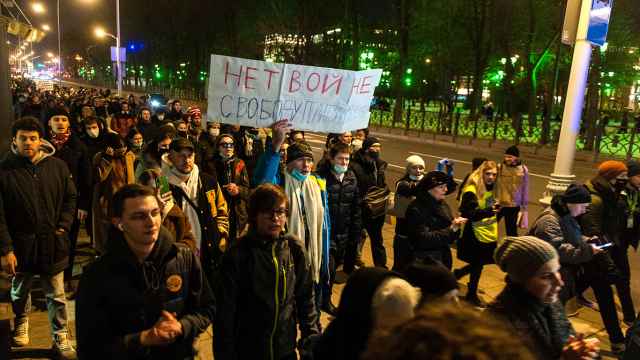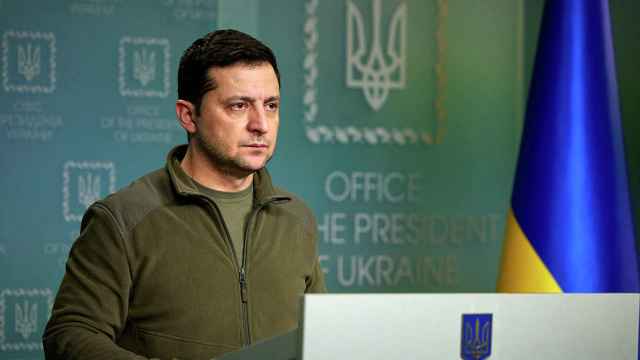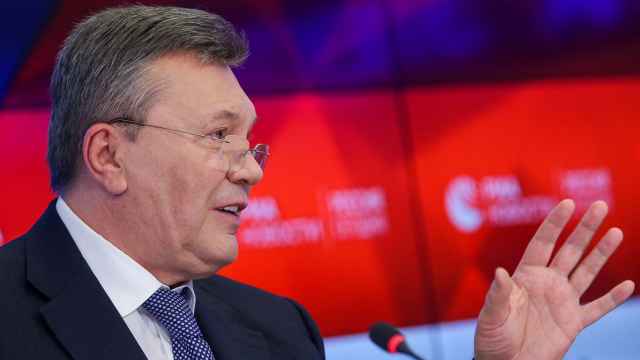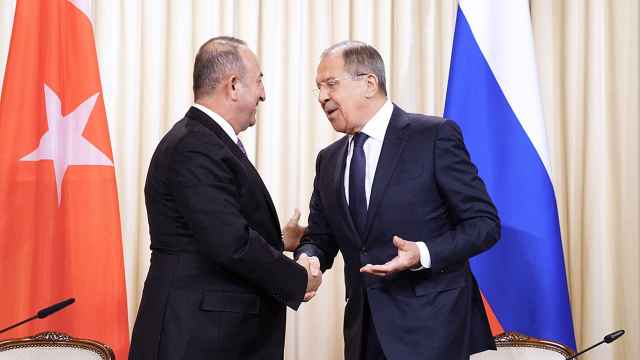Ukraine on Sunday accused the Russian army of having committed a "massacre" in Bucha, a town northwest of Kyiv recently retaken by Ukrainian troops, where the bodies of civilians were found in the streets.
This is what we know at this stage about what happened in Bucha.
A destroyed town
Bucha, a commuter town of around 37,000 outside Kyiv, as well as the nearby town of Irpin, saw fierce fighting since Russia invaded Ukraine on Feb. 24.
Bucha was occupied by the Russian army on the third day of the war, on Feb. 26, and remained inaccessible for more than a month.
Shelling stopped on Thursday and Ukrainian forces were only able to fully enter the town a few days ago.
AFP journalists on Saturday saw massive holes left by shells in apartment blocks, numerous wrecked cars, and streets littered with debris or downed power lines.
Those who stayed in Bucha, trapped by the incessant fighting, were deprived of water and electricity and lived in very cold temperatures.
Witnesses told AFP that they saw Chechen fighters amid the Russian forces.
Around 20 bodies in the street
AFP on Saturday saw the bodies of at least 22 people in civilian clothes on a single street in Bucha.
One of them was on the pavement near a bicycle, others had bags of provisions near them.
One body had his hands tied behind his back and most of the bodies were scattered over several hundred meters on one street.
Another corpse was found near the station, under a blanket.
The cause of death of these people could not be immediately determined, but at least two of them had large head wounds.
The skin on the faces of the corpses looked waxy, suggesting that they had been there for at least several days.
According to the mayor of Bucha, Anatoliy Fedoruk, the victims were killed by Russian forces with a "bullet in the back of the neck."
Mass graves
The corpses of 57 people were found in a mass grave, the chief of local rescue efforts Serhiy Kaplychniy, said as he showed AFP the trench where the bodies lay.
The mass grave is behind a church in the town's center. Some of the bodies were either unburied or partially buried. They were all dressed in civilian clothes.
On Sunday Mayor Fedoruk said 280 people were buried in mass graves because they could not have be buried in cemeteries that were within firing range.
"We found mass graves. We found people with their hands and legs tied up... with bullet holes in the back of their heads," presidential spokesman Sergiy Nikiforov told the BBC Sunday.
How many victims?
The mayor of Kyiv who went to Bucha on Sunday, Vitaly Klitschko, told AFP that the exact number of victims was not yet known.
"We believe that more than 300 civilians died," he said.
"This is not a war, it is a genocide, a genocide of the Ukrainian population."
International outcry
The images from Bucha have led to a global outcry.
U.S. Secretary of State Antony Blinken said Sunday that the sight of multiple civilian bodies in Bucha was a "punch to the gut."
The U.K. said the "appalling acts" must be investigated as war crimes.
French President Emmanuel Macron said the images were "unbearable" and that Russian authorities "must answer for these crimes."
Germany has said the civilian deaths in Bucha are a "terrible war crime" that "cannot go unanswered" and called for fresh sanctions on Moscow.
A Message from The Moscow Times:
Dear readers,
We are facing unprecedented challenges. Russia's Prosecutor General's Office has designated The Moscow Times as an "undesirable" organization, criminalizing our work and putting our staff at risk of prosecution. This follows our earlier unjust labeling as a "foreign agent."
These actions are direct attempts to silence independent journalism in Russia. The authorities claim our work "discredits the decisions of the Russian leadership." We see things differently: we strive to provide accurate, unbiased reporting on Russia.
We, the journalists of The Moscow Times, refuse to be silenced. But to continue our work, we need your help.
Your support, no matter how small, makes a world of difference. If you can, please support us monthly starting from just $2. It's quick to set up, and every contribution makes a significant impact.
By supporting The Moscow Times, you're defending open, independent journalism in the face of repression. Thank you for standing with us.
Remind me later.


